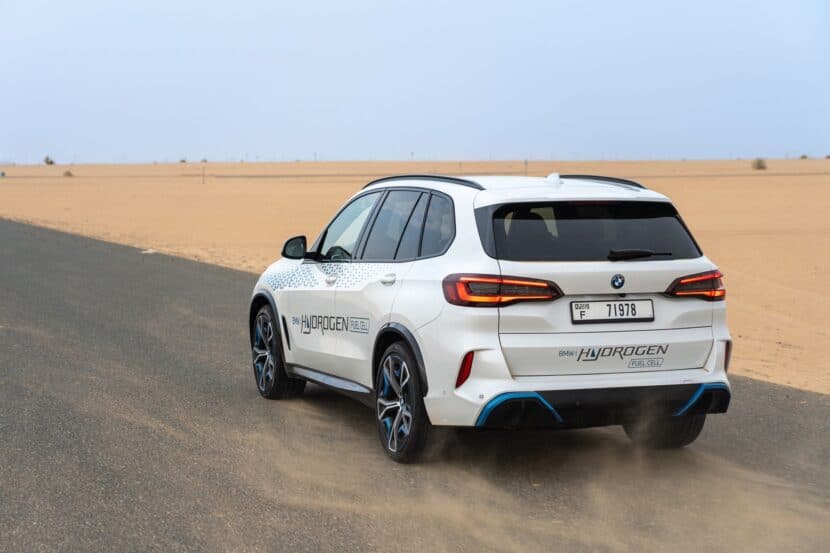It doesn’t necessarily have to be one or the other. BMW thinks there is a place in the automotive world for two types of electric vehicles. The German luxury brand believes hydrogen-fueled EVs can peacefully coexist with those powered by batteries. In a new interview with Automotive News, the company’s vice president of hydrogen vehicles said the two “are not competing technologies.”
Michael Rath argues hydrogen vehicles “are ideal for customers who don’t have convenient charging at home or work or those who travel a lot and can’t plan their lives around charging.” However, at the end of 2023, there were only 921 hydrogen refueling stations in operation around the world. Of those, 265 were in Europe, 166 in Japan, and 174 in South Korea. China is estimated to have around 200 stations while the US has 55 public stations.
It’s hard to say how much the refueling infrastructure for hydrogen vehicles will improve in the next four years. As a refresher, BMW intends to launch its first-ever series production hydrogen car in 2028. The model’s identity still isn’t being disclosed but the company’s latest efforts revolved around the X5. The next-generation luxury SUV (codenamed G65) could be the first hydrogen BMW sold to customers.
While the revamped X5 will stick to the CLAR architecture, Rath said the Neue Klasse platform is being developed to support hydrogen applications as well. Unlike early hydrogen prototypes that had combustion engines, a fuel cell co-developed with Toyota is planned instead. The electric motors and other components will be borrowed from BMW’s battery-powered electric cars.
As for sustainability, Rath believes hydrogen and battery EVs have “comparable footprints” if the entire process is considered. He was referring to obtaining raw materials, manufacturing the vehicle, and recycling it at the end of the life cycle. Strictly speaking of well-to-wheel emissions, Rath admitted battery EVs are more efficient. WTW excludes the emissions generated during the manufacturing process.
BMW and Toyota are not the only automakers still pursuing hydrogen. Hyundai also believes the future of EVs doesn’t have to rely exclusively on batteries. In 2025, it will launch the second-generation Nexo hydrogen crossover. However, the Korean brand faces the same problem as the other two, a severely underdeveloped refueling infrastructure.
Source: Automotive News
First published by https://bit.ly/3sM6JoH

Comments
Post a Comment